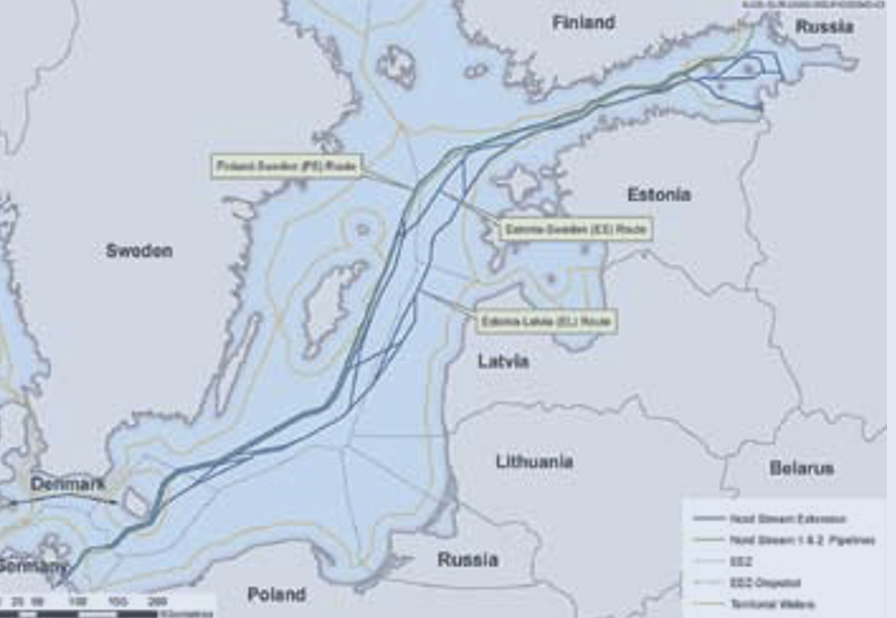
Feasibility Study NEXT - Nord Stream Extension Project
Subject of the Feasibility Study for the Nord Stream Extension Project is an offshore gas transmission system for transporting natural gas from Russia to Europe with a landing pint at the German Baltic Sea Coast. The main characteristics of the gas transmission system were twin subsea pipeline, 48” x 1 200 km each, telescopic design pressure concept with 220, 200, 177 bar, wall thickness ranging between 26.8 mm to 41 mm and a transport capacity of 2 x 27.5 billion sm³/year.
For the German sector of the NEXT Feasibility Study IMPaC undertook numerous tasks such as:
Identification and development of offshore routing alternatives, landfall and onshore options
Site visits
Development of route selection criteria
Route maps
Data bases for project risks, quantities, cost etc.
Time schedules
Explanatory reports
Compilation of final overall feasibility study documentation
IMPaC‘s Services:
4500 hours
Current Status:
The project is being implemented since 2015 as the Nord Stream 2 Pipeline